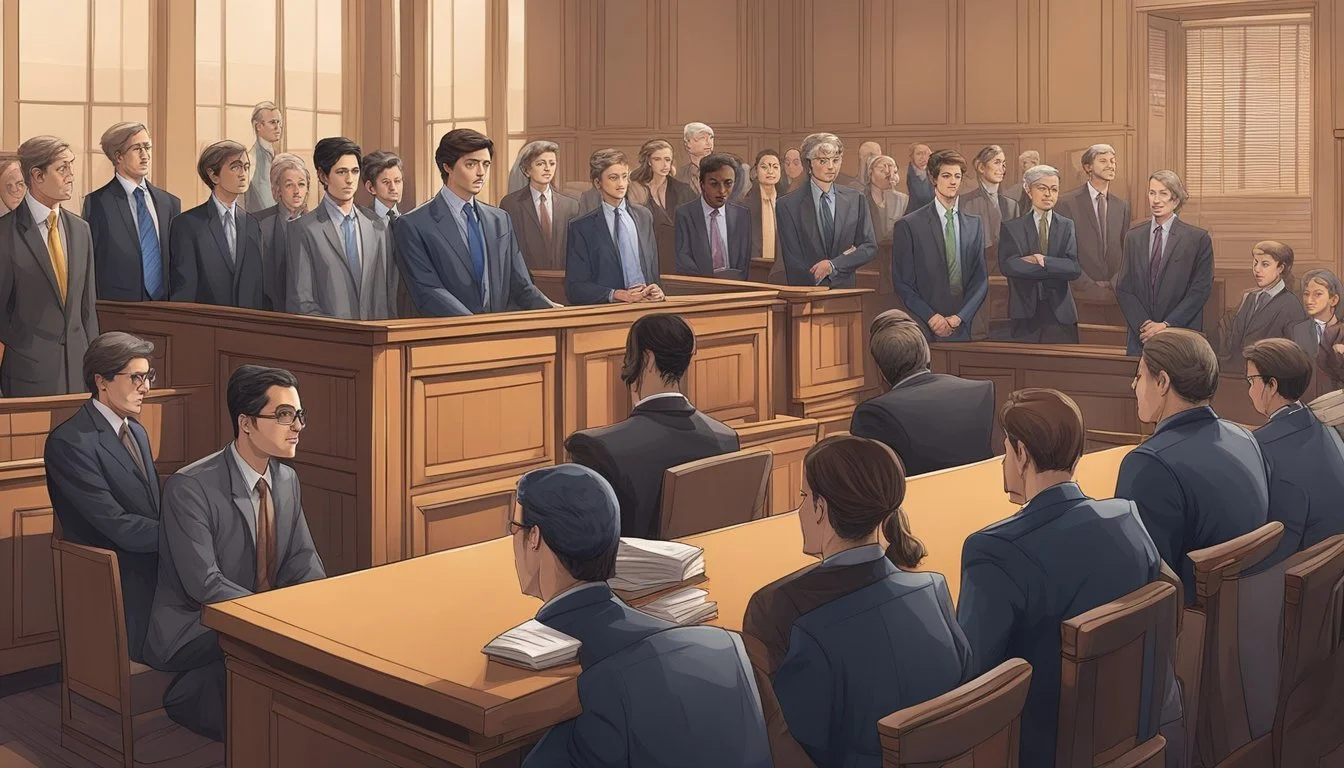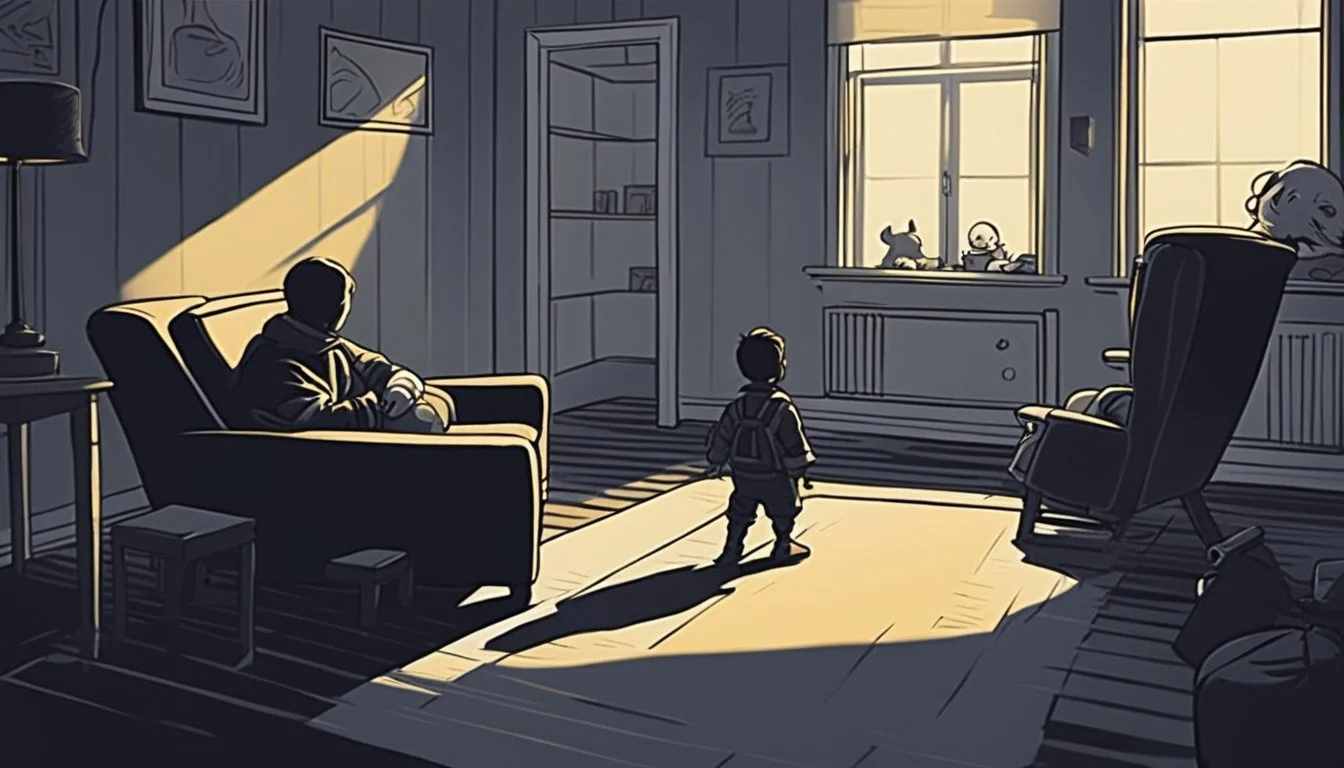Examining the Controversial Child Sociopath Episode in Law and Order SVU
The Law & Order: Special Victims Unit episode "Born Psychopath" tackles the chilling topic of childhood psychopathy. It introduces Henry Mesner, a 10-year-old boy exhibiting extreme antisocial behavior and violence towards his sister. The episode explores the complexities of diagnosing and treating young individuals with severe conduct disorders.
Henry's case presents a challenging dilemma for the SVU detectives and mental health professionals. His actions, including physical abuse and manipulation, raise questions about the nature of psychopathy in children and the appropriate interventions. The story continues in a later episode, "Post-Graduate Psychopath," which follows Henry's release from juvenile detention as a teenager.
These episodes shed light on the ongoing debate in psychology and criminal justice regarding early-onset psychopathy. They prompt viewers to consider the balance between rehabilitation and public safety when dealing with young offenders who display psychopathic traits. The portrayal of Henry Mesner serves as a fictional but thought-provoking case study on how society grapples with children who exhibit dangerous antisocial tendencies.
Character Profile and Psychological Analysis
The SVU episode "Born Psychopath" explores the complex case of Henry Mesner, a young boy exhibiting severe antisocial behaviors. This analysis examines the portrayal of sociopathic traits in children and provides insights into Henry's psychological profile.
Development of Sociopathic Behavior in 'SVU'
SVU depicts sociopathic behavior in children through characters like Henry Mesner. These portrayals often emphasize a lack of empathy, manipulative tendencies, and disregard for others' well-being.
Key traits shown include:
Emotional detachment
Manipulative actions
Lack of remorse
Violent outbursts
The show consults with Dr. George Huang to provide clinical perspectives on these behaviors. His assessments help contextualize the child's actions within a psychological framework.
Henry Mesner: A Case Study
Henry Mesner exemplifies a troubling case of early-onset psychopathy in SVU. His character displays:
Calculated aggression
Absence of emotional connection
Skilled manipulation of others
Henry's actions escalate from harming his sister to taking a hostage. This progression highlights the potential dangers of untreated psychopathic tendencies in youth.
The episode explores treatment options, emphasizing the challenges in managing such severe behavioral issues. Henry's case raises questions about the origins of psychopathy and the effectiveness of early intervention.
Case Overview
The "Born Psychopath" episode of Law & Order: SVU presents a chilling case of juvenile violence. It centers on a 10-year-old boy exhibiting extreme psychopathic behavior, leading to severe consequences for his family and community.
Incidents Leading to the SVU's Involvement
The SVU detectives are called to investigate when a school nurse notices injuries on a young girl named Ruby Mesner. Upon closer examination, it's revealed that Ruby's 10-year-old brother Henry is responsible for her injuries. Henry displays violent outbursts and manipulative behavior typical of psychopathy.
The situation escalates rapidly as Henry's actions become increasingly dangerous. His mother struggles to manage his behavior, which includes physical abuse towards his sister and other aggressive acts. The SVU team, along with Dr. Huang, debate appropriate treatment options for Henry.
Key Victims and Impact on Their Families
Ruby Mesner, Henry's younger sister, bears the brunt of his violence. She suffers physical injuries and emotional trauma from her brother's abuse. The Mesner family is torn apart by Henry's behavior, with his mother overwhelmed and unable to control him.
Other victims emerge as Henry's actions escalate. The community becomes fearful as the extent of his psychopathic tendencies becomes apparent. The SVU detectives face the challenge of protecting potential victims while dealing with a perpetrator who is just a child himself.
The case raises difficult questions about juvenile delinquency, mental health, and the justice system's approach to young offenders with severe behavioral issues.
Legal Proceedings
The legal proceedings for the sociopathic child in SVU involved complex interactions with the family court and juvenile justice system. The case also resulted in significant trial outcomes and sentencing decisions that reflected the unique challenges of dealing with a young offender exhibiting extreme psychopathic behavior.
Family Court and Juvenile Justice System
The family court played a crucial role in addressing the child's dangerous behavior. Social services were involved to assess the family situation and recommend appropriate interventions. The juvenile justice system faced the challenge of balancing rehabilitation with public safety concerns.
Initially, the court ordered psychological evaluations to determine the extent of the child's mental health issues. Dr. Brett Morton, a forensic psychiatrist, provided expert testimony on the child's condition and potential treatment options.
The court considered various placement options, including specialized juvenile facilities equipped to handle high-risk youth. Ultimately, the decision was made to place the child in a secure juvenile detention center due to the severity of his actions.
Trial Outcomes and Sentencing
The trial proceedings were complex, given the defendant's young age and mental state. Assistant District Attorney Dominick Carisi prosecuted the case, presenting evidence of the child's violent acts and lack of remorse.
The defense argued for leniency based on the child's age and potential for rehabilitation. However, the prosecution emphasized the need to protect society from a potentially dangerous individual.
The judge weighed factors such as:
Severity of the crimes committed
Risk to public safety
Age of the defendant
Potential for rehabilitation
The final sentencing decision aimed to balance punishment, treatment, and public safety concerns. The child was committed to a specialized juvenile facility with intensive psychiatric care and close monitoring.
Law Enforcement Perspective
Special Victims Unit detectives face unique challenges when dealing with sociopathic minors. Their approach requires careful consideration of psychological factors and potential risks. In crisis situations, specialized negotiation tactics are essential.
SVU Detectives' Approach to Sociopathic Minors
SVU detectives employ tailored strategies when investigating cases involving sociopathic minors. They focus on building rapport while maintaining professional boundaries. Detectives like Amanda Rollins often use age-appropriate questioning techniques to gather information.
When dealing with violent or manipulative behaviors, officers remain vigilant and document all interactions meticulously. They work closely with child psychologists to understand the minor's mindset and potential triggers.
SVU teams prioritize victim safety, especially in cases of assault or stalking by sociopathic youth. They may recommend protective measures or supervision to prevent further incidents.
Role of Hostage Negotiation and Crisis Management
In high-stakes situations involving sociopathic minors, hostage negotiators play a crucial role. These specialists use calm, clear communication to de-escalate tensions and ensure the safety of all parties involved.
Negotiators adapt their tactics for younger subjects, considering developmental factors and potential unpredictability. They focus on building trust and finding non-violent resolutions.
Crisis management teams coordinate with SVU detectives to develop comprehensive response plans. These plans account for the unique challenges posed by sociopathic minors, including heightened risk of violence or manipulation.
Law enforcement emphasizes the importance of patience and flexibility in these scenarios. They remain prepared for sudden changes in behavior or unexpected actions from the subject.
Psychological Treatment and Rehabilitation
Treating and rehabilitating youth with severe behavioral disorders presents unique challenges. Mental health professionals play a crucial role in developing targeted interventions, while juvenile facilities face obstacles in implementing effective programs for young offenders.
The Role of Mental Health Professionals
Psychiatrists and psychologists are essential in assessing and treating youth with psychopathic or sociopathic tendencies. Dr. George Huang, a forensic psychiatrist on SVU, often provides expert insights into these complex cases.
Mental health experts conduct thorough evaluations to diagnose conditions and develop tailored treatment plans. These may include cognitive-behavioral therapy, family therapy, and medication when appropriate.
Professionals focus on building empathy, conscience, and impulse control in young patients who lack remorse or struggle with violent urges. Early intervention is critical to prevent escalation of harmful behaviors.
Challenges in Rehabilitating Youth Offenders
Juvenile facilities face significant hurdles in rehabilitating youth with severe conduct disorders. Many young offenders have experienced abuse or trauma, complicating treatment efforts.
Limited resources and overcrowding in institutions can hinder individualized care. Staff often lack specialized training to handle extreme cases of psychopathy or sociopathy in minors.
Balancing punishment with rehabilitation is a constant struggle. Some youth may manipulate the system or resist treatment, making progress difficult.
Long-term success rates for rehabilitating young psychopaths remain low. Experts debate whether early intervention can truly alter ingrained personality traits and behaviors in these cases.
Social Impact and Public Perception
SVU's portrayal of sociopathic children has sparked discussions about youth crime and its effects on families and society. The show's depictions have influenced public understanding of complex issues surrounding juvenile offenders and victims.
Media Influence on the Perception of Youth Crime
Crime dramas like SVU shape public attitudes towards youth offenders. The show's portrayal of sociopathic children, such as Ruby Mesner, can reinforce fears about dangerous youth.
These depictions often emphasize extreme violence and lack of remorse, potentially exaggerating the prevalence of such behaviors. This can lead to misconceptions about the nature and frequency of youth crime.
Media portrayals may also impact policy decisions and public support for juvenile justice reforms. Sensationalized representations can sway opinions towards harsher punishments rather than rehabilitation-focused approaches.
Impact on Families of Offenders and Victims
Families of young offenders often face significant challenges. SVU storylines highlight the strain on parents struggling to manage children with violent tendencies. These portrayals can increase awareness of the complex issues these families navigate.
For victims' families, the show depicts the profound trauma and long-lasting effects of youth violence. This can foster empathy and support for victim advocacy programs.
SVU's narratives sometimes explore themes of generational abuse or neglect contributing to a child's violent behavior. This can prompt discussions about early intervention and support for at-risk families.
The show also touches on the societal response to families of young offenders, including stigma and isolation they may experience in their communities.
SVU Series Insights
"Law & Order: Special Victims Unit" has featured several compelling storylines involving young offenders. The show's exploration of complex psychological issues and exceptional performances have contributed to its longevity and critical acclaim.
Notable Performances and Episodes
Season 14, episode 19, titled "Born Psychopath," stands out for its portrayal of a troubled child. Ethan Cutkosky delivers a chilling performance as Henry Mesner, a 10-year-old exhibiting extreme psychopathic behavior. The episode tackles the challenges of dealing with a young offender who poses a significant threat to those around him.
Jake O'Hara plays Henry's father, a psychiatrist who recognizes his son's dangerous tendencies. Pippa Cox appears as the prosecutor, adding depth to the legal proceedings. The episode skillfully balances the psychological aspects with the legal implications of Henry's actions.
Behind the Scenes Facts
SVU's production team conducts extensive research to ensure accurate portrayals of psychological disorders. For the "Born Psychopath" episode, consultants specializing in child psychology were brought in to advise the writers and actors.
The casting process for young actors in emotionally demanding roles like Henry Mesner is particularly rigorous. Producers seek performers who can handle the psychological weight of such characters while maintaining a safe and supportive environment on set.
Mariska Hargitay, who plays Olivia Benson, has spoken about the emotional toll of filming episodes involving child perpetrators. The cast and crew often engage in debriefing sessions after particularly intense scenes to process the difficult subject matter.
Comparative Analysis of SVU Episodes
Law & Order: SVU has explored themes of psychopathy and sociopathy in multiple episodes, examining the complexities of these conditions in both child and adult characters. The show's portrayal of these disorders has evolved over time, offering nuanced perspectives on mental health and criminal behavior.
Similar Themes in Other Episodes
SVU has tackled the issue of violent children in several episodes beyond the sociopath kid storyline. "Born Psychopath" (Season 14) features a 10-year-old boy exhibiting extreme psychopathic behavior. This episode shares parallels with the earlier sociopath kid storyline, exploring the challenges faced by families and law enforcement.
Another notable episode is "Damaged" (Season 4), which delves into the aftermath of childhood trauma. While not explicitly about sociopathy, it examines the long-term effects of abuse on behavior and mental health.
These episodes showcase SVU's commitment to exploring complex psychological issues within the framework of criminal investigations.
Sociopathy and Psychopathy Representations in the Series
SVU's portrayal of sociopathy and psychopathy has been influenced by Dr. George Huang, the show's forensic psychiatrist. His character provides expert insights into these conditions, offering a more clinical perspective.
The series often distinguishes between sociopathy and psychopathy, though the terms are sometimes used interchangeably. Sociopathic characters are typically depicted as products of their environment, while psychopathic individuals are shown to have innate tendencies towards violence and lack of empathy.
SVU's representation of these disorders has sparked discussions about nature vs. nurture in the development of antisocial behaviors. The show frequently explores the ethical and legal challenges surrounding violent offenders with these conditions.








